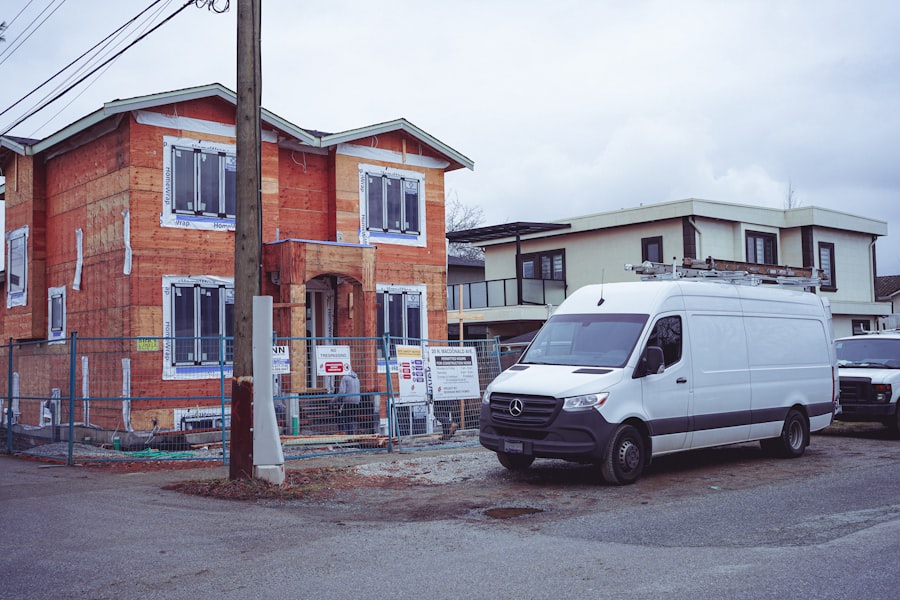Rent-to-own manufactured homes represent a unique intersection of rental and ownership models, providing an alternative pathway for individuals and families seeking homeownership. This arrangement allows tenants to rent a manufactured home with the option to purchase it after a specified period. Typically, a portion of the monthly rent is credited toward the eventual purchase price, making it an appealing option for those who may not have sufficient savings for a down payment or who are working on improving their credit scores.
The manufactured home itself is often situated in a community or on a private lot, offering flexibility in terms of location and lifestyle. The concept of rent-to-own is particularly beneficial in the context of manufactured homes, which are often more affordable than traditional site-built homes. Manufactured homes can be an attractive option for first-time buyers or those looking to downsize, as they generally come with lower price tags and reduced maintenance costs.
Understanding the nuances of this arrangement is crucial for potential buyers, as it involves navigating both rental agreements and the eventual purchase process. This dual nature can create opportunities but also requires careful consideration of the terms involved.
Key Takeaways
- Rent-to-own manufactured homes offer a pathway to homeownership with flexible qualification criteria.
- Benefits include building equity while renting and avoiding traditional mortgage hurdles.
- Understanding contract terms is crucial to avoid pitfalls in rent-to-own agreements.
- Finding affordable options requires research and working with reputable sellers or brokers.
- Rent-to-own manufactured homes are increasingly seen as a viable solution for affordable housing challenges.
Benefits of Rent-to-Own Manufactured Homes
One of the primary benefits of rent-to-own manufactured homes is the opportunity for individuals to build equity while renting. Unlike traditional rental agreements where monthly payments contribute solely to the landlord’s income, a portion of the rent in a rent-to-own agreement is allocated toward the purchase price of the home. This means that tenants are not just paying for a place to live; they are also investing in their future ownership.
This model can be particularly advantageous for those who may struggle to save for a down payment while also covering monthly living expenses. Additionally, rent-to-own agreements often provide tenants with the flexibility to test out the home and community before committing to a purchase. This trial period allows potential buyers to assess whether the manufactured home meets their needs and if they enjoy living in the area.
It can also serve as a time for tenants to improve their financial situation, whether by enhancing their credit score or saving additional funds for the eventual purchase. This unique aspect of rent-to-own arrangements can alleviate some of the pressure associated with making a long-term commitment to homeownership.
How to Qualify for Rent-to-Own Manufactured Homes

Qualifying for a rent-to-own manufactured home typically involves several key criteria that potential buyers must meet. First and foremost, landlords or sellers will often evaluate the tenant’s financial stability, which includes assessing income levels, employment history, and creditworthiness. While some sellers may be more lenient than traditional lenders regarding credit scores, having a solid income and a reliable job history can significantly enhance one’s chances of qualifying for such an agreement.
In addition to financial qualifications, prospective tenants should be prepared to demonstrate their commitment to maintaining the property. This may involve providing references or undergoing background checks. Sellers often seek tenants who will treat the home as their own, ensuring that it remains in good condition throughout the rental period.
Understanding these requirements can help potential buyers prepare effectively and increase their likelihood of securing a favorable rent-to-own agreement.
Finding Affordable Rent-to-Own Manufactured Homes
| Metric | Description | Typical Range | Notes |
|---|---|---|---|
| Monthly Rent-to-Own Payment | Monthly amount paid towards rent and eventual ownership | 400 – 900 | Varies by location and home size |
| Initial Down Payment | Upfront payment to start rent-to-own agreement | 500 – 5,000 | Higher down payment can reduce monthly payments |
| Lease Term Length | Duration of rent-to-own contract | 12 – 36 months | Longer terms may increase total cost |
| Home Size (Square Feet) | Size of manufactured home | 600 – 1,500 | Smaller homes tend to be more affordable |
| Location | Geographic area of the home | Urban, Suburban, Rural | Rural areas often have lower rent-to-own costs |
| Credit Score Requirement | Typical credit score needed to qualify | 550 – 700 | Lower scores may require higher down payment |
| Maintenance Responsibility | Who pays for upkeep during lease | Tenant or Landlord | Varies by contract terms |
Finding affordable rent-to-own manufactured homes requires a strategic approach that combines research, networking, and sometimes a bit of creativity. One effective method is to utilize online platforms that specialize in real estate listings, including those specifically catering to manufactured homes. Websites like Zillow, Craigslist, and local real estate agencies often feature listings that include rent-to-own options.
Filtering searches by price range and location can help narrow down choices to fit individual budgets. Networking within local communities can also yield valuable leads on available rent-to-own properties. Engaging with local real estate agents who have experience in manufactured homes can provide insights into upcoming listings or properties that may not yet be on the market.
Additionally, joining community groups on social media platforms can connect potential buyers with current homeowners looking to sell through rent-to-own agreements. This grassroots approach can uncover hidden gems that might otherwise go unnoticed in broader searches.
Understanding the Terms and Conditions of Rent-to-Own Agreements
Navigating the terms and conditions of rent-to-own agreements is crucial for anyone considering this path to homeownership. These agreements typically outline essential details such as the duration of the rental period, the amount of rent that will be credited toward the purchase price, and any maintenance responsibilities that fall on the tenant versus the seller. It is vital for potential buyers to read these documents carefully and seek clarification on any ambiguous terms before signing.
Another critical aspect to consider is the purchase price of the home, which is often determined at the outset of the agreement. Buyers should ensure that this price reflects current market conditions and is fair based on comparable sales in the area. Additionally, understanding what happens if the tenant decides not to purchase at the end of the rental period is essential; some agreements may allow for forfeiture of any accumulated equity if the buyer opts out.
Engaging a real estate attorney or advisor can provide valuable guidance in interpreting these agreements and ensuring that all parties are protected.
Tips for Successfully Navigating Rent-to-Own Manufactured Home Ownership

Successfully navigating rent-to-own manufactured home ownership requires proactive planning and diligent management of finances and responsibilities. One key tip is to maintain open communication with the seller throughout the rental period. Regular check-ins can help address any issues that arise promptly and foster a positive relationship that may benefit both parties when it comes time for purchase negotiations.
Additionally, prospective buyers should treat their rent-to-own experience as a preparatory phase for full homeownership. This includes budgeting not only for monthly rent but also for potential maintenance costs and property taxes that may arise during the rental period. Establishing a savings plan specifically for these expenses can help ensure that buyers are financially prepared when it comes time to finalize the purchase.
By approaching this arrangement with foresight and responsibility, individuals can set themselves up for success in transitioning from renters to homeowners.
Common Misconceptions about Rent-to-Own Manufactured Homes
Despite their growing popularity, several misconceptions about rent-to-own manufactured homes persist, potentially deterring interested buyers from exploring this option further. One common myth is that rent-to-own agreements are primarily designed for individuals with poor credit or financial instability. While it is true that some sellers may be more flexible regarding credit scores, many are looking for responsible tenants who demonstrate financial reliability and commitment to maintaining the property.
Another misconception is that rent-to-own agreements are inherently risky or disadvantageous for buyers. While there are certainly pitfalls to be aware of—such as unclear terms or unexpected fees—many successful transactions occur when both parties engage transparently and fairly. Buyers who conduct thorough research, understand their rights, and communicate effectively with sellers can navigate these agreements successfully, ultimately achieving their goal of homeownership without undue risk.
The Future of Rent-to-Own Manufactured Homes in Affordable Housing
The future of rent-to-own manufactured homes appears promising within the broader context of affordable housing solutions. As housing prices continue to rise in many regions, innovative models like rent-to-own offer viable alternatives for individuals seeking stability without prohibitive upfront costs. Policymakers and housing advocates are increasingly recognizing the potential of this model to bridge gaps in homeownership access, particularly among low- to moderate-income families.
Moreover, as awareness grows about sustainable living practices and alternative housing solutions, manufactured homes are gaining traction as an eco-friendly option that aligns with modern values. The ability to customize these homes further enhances their appeal, allowing buyers to create spaces that reflect their personal tastes while remaining budget-conscious. As communities continue to explore diverse housing strategies, rent-to-own manufactured homes will likely play an integral role in shaping accessible pathways to homeownership in an ever-evolving housing landscape.



